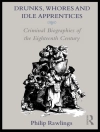The Uncalled (1898) is a novel by African American author Paul Laurence Dunbar. Published while Dunbar was at the height of his career as one of the nation’s leading black poets, The Uncalled marked his debut as a novelist with a powerful vision of faith and perseverance who sought to capture and examine the diversity of the African American experience. When his mother dies, Freddie Brent—whose father is presumed dead—is officially orphaned. Although some members of the church community think it best to send him to the local orphanage, Miss Hester, an unmarried older woman, declares it her duty to provide for the boy. Having never raised a child before, however, she struggles to ascertain and fulfill Freddie’s needs, focusing instead on her perception of his troubled upbringing and punishing the boy for his parents’ supposed sinfulness. Freddie looks forward to visits from Eliphalet Hodges, Miss Hester’s longtime suitor, who acts as a father figure and shows him kindness and respect. This edition of Paul Laurence Dunbar’s The Uncalled is a classic of African American literature reimagined for modern readers.
Since our inception in 2020, Mint Editions has kept sustainability and innovation at the forefront of our mission. Each and every Mint Edition title gets a fresh, professionally typeset manuscript and a dazzling new cover, all while maintaining the integrity of the original book.
With thousands of titles in our collection, we aim to spotlight diverse public domain works to help them find modern audiences. Mint Editions celebrates a breadth of literary works, curated from both canonical and overlooked classics from writers around the globe.
เกี่ยวกับผู้แต่ง
Paul Laurence Dunbar (1872-1906) was an African American poet, novelist, and playwright. Born in Dayton, Ohio, Dunbar was the son of parents who were emancipated from slavery in Kentucky during the American Civil War. He began writing stories and poems as a young boy, eventually publishing some in a local newspaper at the age of sixteen. In 1890, Dunbar worked as a writer and editor for The Tattler, Dayton’s first weekly newspaper for African Americans, which was a joint project undertaken with the help of Dunbar’s friends Wilbur and Orville Wright. The following year, after completing school, he struggled to make ends meet with a job as an elevator operator and envisioned for himself a career as a professional writer. In 1893, he published Oak and Ivy, a debut collection of poetry blending traditional verse and poems written in dialect. In 1896, a positive review of his collection Majors and Minors from noted critic William Dean Howells established Dunbar’s reputation as a rising star in American literature. Over the next decade, Dunbar wrote ten more books of poetry, four collections of short stories, four novels, a musical, and a play. In his brief career, Dunbar became a respected advocate for civil rights, participating in meetings and helping to found the American Negro Academy. His lyrics for In Dahomey (1903) formed the centerpiece to the first musical written and performed by African Americans on Broadway, and many of his essays and poems appeared in the nation’s leading publications, including Harper’s Weekly and the Saturday Evening Post. Diagnosed with tuberculosis in 1900, however, Dunbar’s health steadily declined in his final years, leading to his death at the age of thirty-three while at the height of his career.












